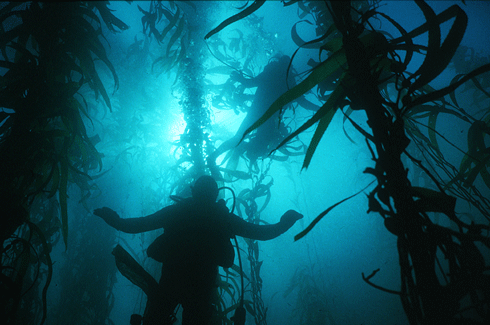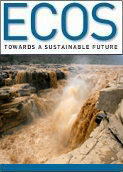
|
Published: 20 December 2012
Marine-life mapping project taps into citizen science power
A marine-life database initiative known as Redmap – Range Extension Database and Mapping project – that has been operating in Tasmania since 2009 has gone national with the launch of an interactive reporting website aimed at encouraging Australians to log uncommon catches or unusual sightings of marine life.
Redmap encourages fishers and divers to report sightings and upload photos of marine life that aren’t usually found at their local fishing, diving and swimming spots.
These community sightings will help reveal if fish are ‘shifting their range’ in search of their optimal water temperatures, as seas generally warm in a changing climate.
Since the Redmap website started, Tasmanian fishers and divers have logged hundreds of unusual sightings, including eastern rock lobster, southern Maori wrasse and King George whiting, all spotted farther south than their usual home waters.
Through a collaborative project led by the Institute for Marine and Antarctic Studies (IMAS) at the University of Tasmania, Redmap has gone national, to tap into the observations of up to four million Australians who go fishing or diving at least once a year.
‘It is the ultimate in crowd sourcing,’ said Redmap founder Dr Gretta Pecl, a senior marine scientist at IMAS. ‘It taps into the knowledge, and eyes, of thousands of fishers, divers and swimmers to track changes in fish distributions in Australia’s vast coastal waters.’
Redmap is interested in reports of any marine life deemed uncommon along a particular stretch of the coast, and not just fish, but also turtles, rays, lobsters, corals, seaweeds, urchins and prawns.
A network of marine scientists around the country will review the sighting photos to verify the species’ identity and ensure high-quality data.
Redmap aims to become not only a continental-scale monitoring program along Australia’s vast coastline to help track marine range shifts, but also to engage Australians with marine issues using their own data.
‘We hope to create a network of fishers and divers that are driven to finding out how fish are impacted by changing conditions, such as ocean warming, by contributing to this knowledge,’ said Dr Pecl.
Associate Professor Natalie Moltschaniwskyj, a marine ecologist in the School of Environmental and Life Sciences at the University of Newcastle, coordinates Redmap NSW.
‘We’re predicting a mixed reaction to warming seas,’ Associate Professor Moltschaniwskyj said. ‘While some species may adapt to the balmy new conditions, others will shift into new areas in search of their preferred marine climate or may disappear from an area.’
Already anecdotal evidence from fishers and divers has pointed to some range shifts. Assoc. Prof. Moltschaniwskyj said they’re hearing about more tropical fish venturing into Sydney Harbour, such as damselfish and angelfish species.
Professor Colin Buxton, Director of the IMAS Fisheries, Aquaculture and Coasts Centre, said Redmap was a wonderful example of how the community and scientists can work together to understand how climate change is affecting our oceans and to help manage this uncertain future.
‘This information will allow some communities to take advantage of new fish arrivals and will help others minimise risks such as the introduction of pest species for those fisheries or regions that may be more impacted by species on the move,’ he said.
The Redmap website also has information and news on fishing, diving and the marine environment. A smart phone application will be up and running in 2013 to make logging an unusual fish easier. You can get involved by becoming a Redmap member and logging unusual animals, signing up for the quarterly newsletter, or liking Redmap on Facebook.
Source: UTAS & University of Newcastle




